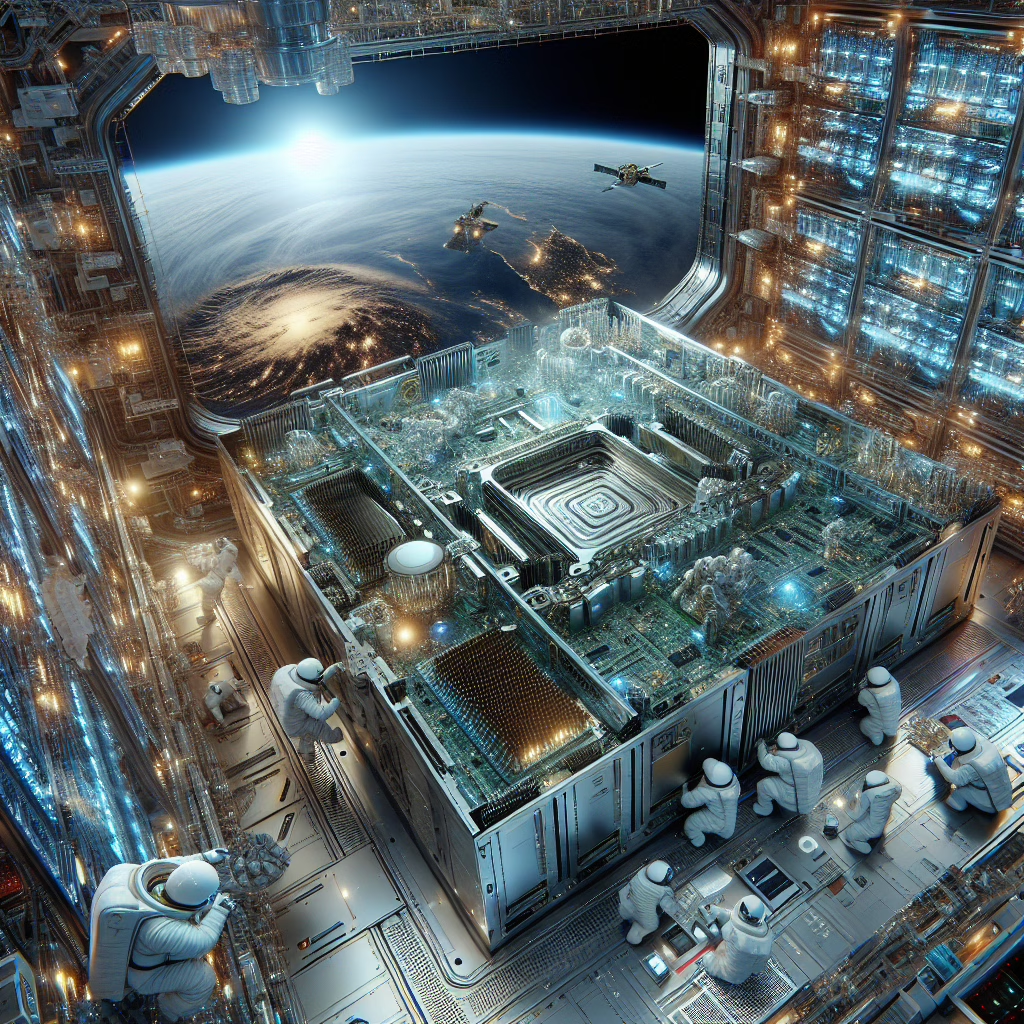In a cosmic twist that’s sure to make even the most seasoned sci-fi fans raise an eyebrow, China has taken a giant leap into the great unknown by assembling its very own supercomputer in space. Yes, you heard it right! While we’re still trying to figure out how to get our printers to work at home, China is busy launching high-tech computing systems beyond Earth’s atmosphere. This isn’t just a moonshot; it’s a full-on rocket ride into the future!
The Launch of the Century: What You Need to Know
As of now, the Chinese government has kicked off the assembly of this supercomputer in space aboard its Tiangong space station, which is rapidly becoming the hottest tech hub orbiting our planet. Imagine a place where bits and bytes float freely—like your lost socks in the dryer—only to be transformed into powerful computational capabilities. The supercomputer will enable advanced research in various fields, including artificial intelligence, climate modeling, and possibly even intergalactic travel (okay, maybe not quite yet on that last one).
This ambitious project underscores China’s commitment to achieving technological self-sufficiency and expanding its influence in the realm of space exploration. With the launch of this supercomputer, they are not just reaching for the stars; they’re planning to compute among them!
Why a Supercomputer in Space?
One might wonder why anyone would want to build a supercomputer in space. Isn’t it easier just to keep all that complex hardware on good old terra firma? Well, dear reader, let’s dive into some cosmic logic!
- Reduced Latency: By placing supercomputers closer to satellites and other space-based infrastructure, data can be processed more quickly. Think of it as sending your emails directly from your spaceship instead of waiting for them to bounce back from Earth.
- Unmatched Research Capabilities: With a supercomputer orbiting our planet, researchers can run simulations and analyze data that would be nearly impossible to process on Earth due to limitations in resources or environmental conditions.
- The Ultimate Cooling System: Who needs fancy air conditioning when you have the vacuum of space? The natural cold of outer space makes it an ideal environment for keeping these high-powered machines cool.
The Tech Behind the Magic
This isn’t just any old computer. The supercomputer being assembled is based on cutting-edge technology that promises to outperform many existing systems. Equipped with advanced processors and expansive memory capabilities, it’s set to tackle some of the most challenging scientific problems known to humanity.
The Chinese have dubbed this technological marvel “the Godson,” a nod to both its power and its origins. It’s like having a superhero computer that can save the day by processing data faster than you can say “interstellar travel.” This Godson will contribute significantly to tasks such as deep learning and big data analytics—all while floating majestically above us.
What This Means for Global Tech Competition
The launch of China’s supercomputer in space marks a pivotal moment not just for China but also for global technology competition. As nations scramble to establish their presence in space and push the boundaries of what is possible with computing power, we may witness an exciting race toward new innovations. Just think: maybe one day we’ll have smartphones that can communicate directly with extraterrestrial beings (hopefully friendly ones).
This endeavor also raises questions about collaboration versus competition in international science. Will we see a future where countries work together on projects like these? Or will we be stuck watching tech giants duke it out above our heads like characters in a sci-fi movie? Only time will tell!
A Cosmic Call to Action!
As we stand on the brink of this new era of technology with China’s supercomputer in space, let’s keep our minds open and our imaginations soaring. After all, if they can build a computer among the stars, what else could humanity achieve when we really put our minds—and resources—together?
We’d love to hear your thoughts on this groundbreaking development! Do you think having a supercomputer in space will lead us closer to solving Earthly problems? Or will it just create more challenges? Share your cosmic musings below!
A special thanks to The Verge for their insightful article that inspired this piece!
For more on tech advancements, check out our article on the new Nvidia DGX Spark clone by MSI, and how it fits into the landscape of supercomputers today.

